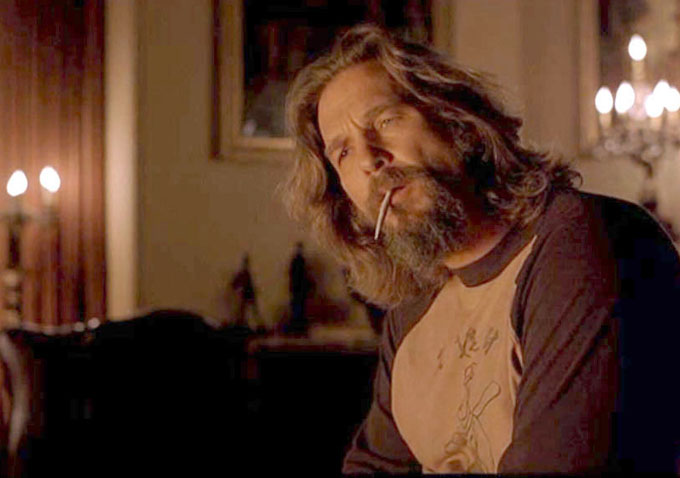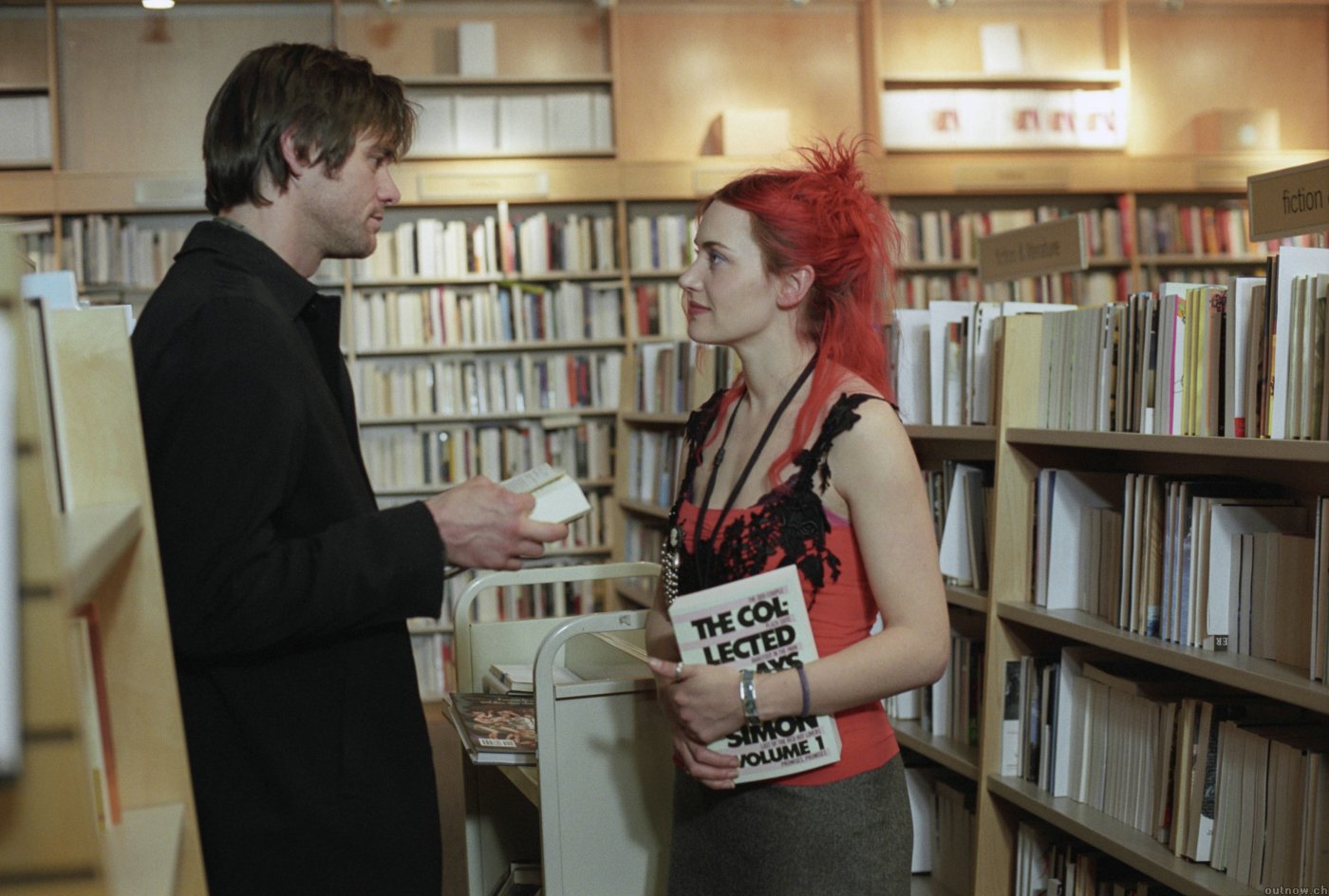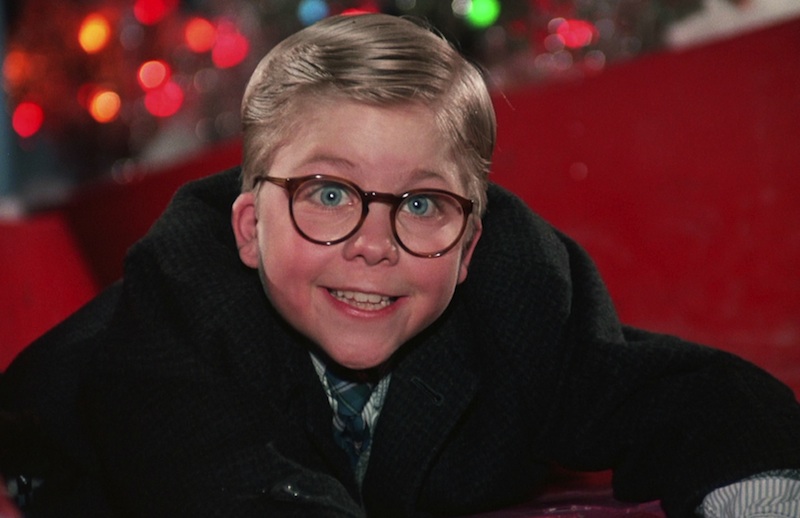The 11 Best Movie Narrators
The 11 Best Movie Narrators

“Listen Up, Philip,” the hysterical and deeply sad new film from writer-director Alex Ross Perry, makes use of an omnipresent, all-knowing narrator to elucidate the goings-on occurring around Perry’s self-concerned characters. The acerbic wit of the disembodied voice tells us things we wouldn’t otherwise know, things we already know, and things we know not to be true, depending on the situation. The titular Philip, played by Jason Schwartzman, is a talented young writer who lacks social graces and charm and displays an overall sense of resentment for humanity. The misanthropic scribe comes under the tutelage of a Philip Roth-like writer played by Jonathan Pryce (his finest role in years), and together they ornately chastise the world, one glass of scotch at a time. Without the narrator’s lacerating dry humor, “Listen Up, Philip” may not be as capital-G Great as it is, since its characters are such assholes, and so much of the fun (and enlightenment) comes from the lingering voice’s erudition. As the narrator becomes more self-aware and matures, Philip continues down his lonely path, unaware of the voice calling out to him.
In acknowledgement of the wonderful narrator of “Listen Up, Philip” we’ve compiled a list of the best movie narrators.
11. Barbara Covett, “Notes on a Scandal”
Judi Dench is Barbara Covett, a history teacher and part-time writer at a comprehensive school in London. She’s fast approaching retirement, and seeks solace in her diary, which harbors all of the malicious and sorrowful feelings she has to hide at school. She is a lonely and garrulous old woman with a penchant for sabotage, and she finds friendship in a new art teacher (Cate Blanchett). But certain indiscretions come to light, and Barbara destroys her new friend’s life. Dench’s serene, eloquent narration is as sad as it is disquieting (and works in lovely tandem with Philip Glass’ score); what Barbara tells us and what we see aren’t always simpatico, and her own self-justification for her actions may be cruel, but it’s also oddly empathetic.

10. The Stranger, “The Big Lebowski”
“Sometimes you eat the bar, and sometimes the bar, well, it eats you.” The Coens’ postmodern send-up of Raymond Chandler’s singular sleuth style is, of course, a fan favorite that has come to transcend normal cult appeal. It’s almost a franchise at this point. (There’s even a Lebowski-themed store near Washington Square in New York.) Jeff Bridges’ dude is so clueless, and John Goodman’s Vietnam Vet Walter is so self-absorbed (“What the FUCK has anything got to do with Vietnam? What the fuck are you talking about?”), it only makes sense that Sam Elliot’s narrator would be similarly oblivious. His opening narration–“Sometimes there’s a man”–is more of an ode to the sapience of a narrator than actual narration. It tells us nothing about the Dude, but tells us everything about “The Big Lebowski,” a film in which even the narrator is lost up his own tookus.
9. Joe Gillis, “Sunset Boulevard”
The first “man narrates from beyond the grave” film, Billy Wilder’s classic is a masterclass of deception and deceit. Joe Gillis (Williams Holden), a down-on-his-luck writer, is recruited by long-forgotten silent film starlet Norma Desmond (Gloria Swanson) to pen a script for her comeback film. But Norma, tremendously lonely and emotional unwell, becomes deeply, darkly in love with the idea of having Joe as a companion, and refuses to let him go. Holden introduces us while face-down in a sinuous pool, his dead bloated body drifting around the surface of the glassy water; the rest of the film is told through his sad voice, which quivers with the foresight of his own impending demise. Way before Kevin Spacey decided to rebel against his suburbanite ennui, Billy Wilder and William Holden perfected the whole narrate-from-beyond thing.
8. Oh Dae-su, “Oldboy”
Belligerent drunk businessman Oh Dae-su (Choi Min-sik) is inexplicably and for reasons unknown incarcerated in a hotel room for 15 years. When he’s released, he seeks answers and revenge in the most histrionic ways imaginable. Min-sik’s voiceover work is a brilliant, manic-depressive amalgam of anger, sorrow, frustration, confusion, joy, and, ultimately, acceptance. South Korean auteur Park Chan-wook’s immaculate visuals and control of tone are aided immensely by Min-sik’s narration (his performance is one of the finest in South Korean cinema), which mingles tar-black humor (“Can the imaginary training of fifteen training be put to use? No, it can’t.”) and ontology (“Laugh and the world laughs with you; weep and you weep alone”). Chan-wook has never been able to top “Oldboy” because Min-sik’s sense of timing and annunciation is attuned with the joke dwelling under the tragedy.

7. Narrator, “The Royal Tenebaums”
In the opening moments of Wes Anderson’s modern classic of droll wit, Alec Baldwin shares the story of Royal Tenenbaum (Gene Hackman, one of his best turns) and Royal’s long-suffering family. Clearly an influence on “Listen Up, Philip,” Schwartzman being an Anderson regular, Baldwin’s sharp, incisive narration and his clench-fist delivery sort of keep the film at a distance, and lend it an air of fantasy. Like a calm professor looming over a lectern, Baldwin is assured and sort of smug, and it totally works. He seems to pity the characters while still thinking he’s better than them, though Anderson always has reams of sympathy for his characters.
6. The Narrator, “Fight Club”
Ignore the MRAs and the dude-bro-chill meatheadedness of millennial angst that continues to fawn over the surface conceits of David Fincher’s film–it really has a lot more going for it than Brad Pitt’s abs and anti-conformity diatribes. Obviously, being a Fincher flick, it has style up the wazoo, but what separates this from his other films (until “Gone Girl,” that is) is the sinisterly funny narration. Edward Norton’s “I am Jack’s…” are now embedded in the pop-culture lexicon, but their ubiquity shouldn’t devalue lines like, “It was beautiful: we were selling rich women their own fat asses back to them,” and, “Strangers with this kind of honesty make me grow a big rubbery one.”
5. Travis Bickle, “Taxi Driver”
Paul Schrader’s screenplay for “Taxi Driver” is a sordid mess, far more verbose and less surreal than the eventual masterpiece Martin Scorsese would make. Robert De Niro’s Travis Bickle represents the average New Yorker purged of his empathy and patience. He tells us about the lurid details of his quotidian existence (sometimes he even cleans the cum off the back seat of his taxi) while cruising through the pit of Times Square circa 1974 in that piss-yellow vessel. Travis’ detached voice over work, complete with double-takes and mulligans when he misspeaks, is as flawed and fascinating as the character from which those angry, pained words emanate.

4. Joel Barish, “Eternal Sunshine of the Spotless Mind”
Jim Carrey’s sad whispers have all the the tenacity of a gentle Montauk breeze, but that’s kinda the point: Carrey’s Joel Barish is a sad-sack who falls in love with every girl who shows him the slightest bit of attention. He has a scar-tissue heart clattering around in his chest. Emotionally withdrawn and meek, Joel strikes up a tumultuous relationship with free-spirit Clementine (Kate Winslet, who is spectacular, obviously). As you probably know, they break up, memories get expunged, former flames are rekindled. Michael Gondry’s bonkers direction is tethered to a fleeting notion of reality by Carrey’s voice over work, which has more emotional resonance than most “serious” actors can muster.
3. Henry Hill, “Goodfellas”
“As far back as I can remember, I always wanted to be a gangster.” Cue Tony Bennett. Ray Liotta has been steadily churning out some damn good work for over thirty years (he’s great in “Killing Them Softly” and “Cop Land,” and turns in an unnecessarily emotional performance in the tripe “Smokin’ Aces”), but somehow he never managed to rise to the top-tier, even after the phenomenal success of “Goodfellas.” Maybe it’s cause he’s funny looking (not like a clown), who knows. But he makes nostalgic corrosive here, as he waxes poetic about his youthful longing to be a Wiseguy, before veering into paranoia and, ultimately, betrayal. Of course Joe Pesci steals the film (one of the all-time great supporting roles, so good it’s not even annoying that he basically rehashed it for “Casino”), but Liotta is so believable, so grounded and untempted by theatrics, his narration keeps us situated in the reality Scorsese captures so operatically.
2. Narrator, “Dr. Seuss’ How the Grinch Stole Christmas”
Boris Karloff is reputably one of the nicest guys to ever grace Hollywood. His unmistakable visage–with that broad forehead, and his hollow, sunken-in eye, and that trace of a mouth, and those intimidating eyebrows between which he could probably bend rebar–wasn’t exactly handsome or friendly-looking (it’s that fist-like face that earned him the role of Frankenstein’s monster), so children were terrified of him. His was the kind of mug that sent women running to the other side of the street; yet that voice, baritone and serene, like a minor chord sustained on a contrabass tuba, was something else entirely. In the beloved adaptation of Dr. Seuss’ “How the Grinch Stole Christmas,” Karloff provides the aural consort to the furry green fiend whose heart was two sizes too small. As the narrator the Uncanny one is calm and careful, as if speaking to frightened children (and let’s face it, he usually was), but as The Grinch he’s malevolent. It may only be a short film–“only” a short film–but Karloff set the standard for voice-over work here.

1. Ralphie as an Adult, “A Christmas Story”
By this point you’ve probably seen this perennial Holiday TV staple a hundred times; blame network television, not the film itself. Bob Clark’s classic is a masterpiece of Holiday malaise, as concerned with the opacity of nostalgia as it is the joys of youth. Jean Shepherd has that classic radio voice that couldn’t possibly lie to you. He’s loving and warm, at times paranoid (“You’ll shoot your eye out”), tapped into the fervor of adolescence but wise with age. He gets vehemently worked up at times, such as when he says the F-word, like that one relative who loves to tell armchair stories to wide-eyed kids in front of the fire place. Try to imagine “A Christmas Story” without Shepherd–it’s like glasses without lenses, or a car without tires: It just doesn’t work.
Comments
Post a Comment